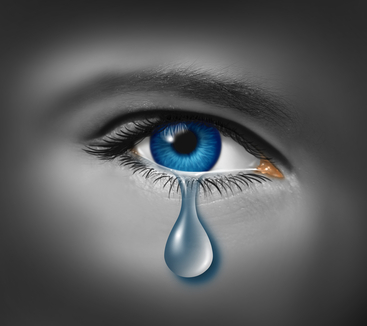Sexual Abuse and Mental Health:
Give It Back: Breaking The Power and Pain of Shame and Betrayal
The second topic in our sexual abuse and mental health series.
By Rebecca Mitchell
If you have ever spilt your coffee on a “hot date” and had your possible partner plus the rest of the café staring at you - you will quite possibly be acquainted with the unwelcome feeling of shame.
Shame is a terrible and yet extremely powerful emotion. Sadly 11% of boys under 16 and 21% of girls under 16 may have strong feelings of shame about themselves because they have experienced child sexual abuse. (Pat Cawson: NSPCC 2000).
Shame Is So Damaging
Shame is the one of the biggest issues with abuse and it is often shame that can have the most devastating effect on the mental health and welfare of a victim of abuse. I know this myself because I experienced sexual abuse for many years with someone who was very close to me and consequently I suffered from feelings of desperate shame and this led to mental anguish and pain including anxiety, depression and compulsive behaviours.
Later I found out this is very common with people who have experienced abuse. Victims in essence carry the shame that does not belong to them but to the abuser. Penny Parks a counsellor and author says “The aggressor projects the blame and guilt onto the child and the child accepts that projection as truth. It is like life imprisonment for a crime that someone else has committed.” (1)
How Shame Expresses Itself
The shame can outwork itself in a person with painful behaviour patterns that impact mental health.
These can include:
- Feeling “something is wrong with me”
- Isolated and lonely - fearful when someone wants to have a close relationship
- Fearful of intimacy - wanting relationship but pushing people away
- People pleasing behaviour patterns - not aware of how to get your own needs met
- Punishing yourself with negative and destructive self-talk –
- Physically harming yourself
- Suffering from Depression
- Compulsive and obsessive behaviours – Outward actions that are due to inner feelings of shame and anxiety. (2)
Freeing yourself from shame
So how can we be start to put the shame back on the abuser – the right person and start to be free of the shame that causes so much mental distress?
Please also see:






